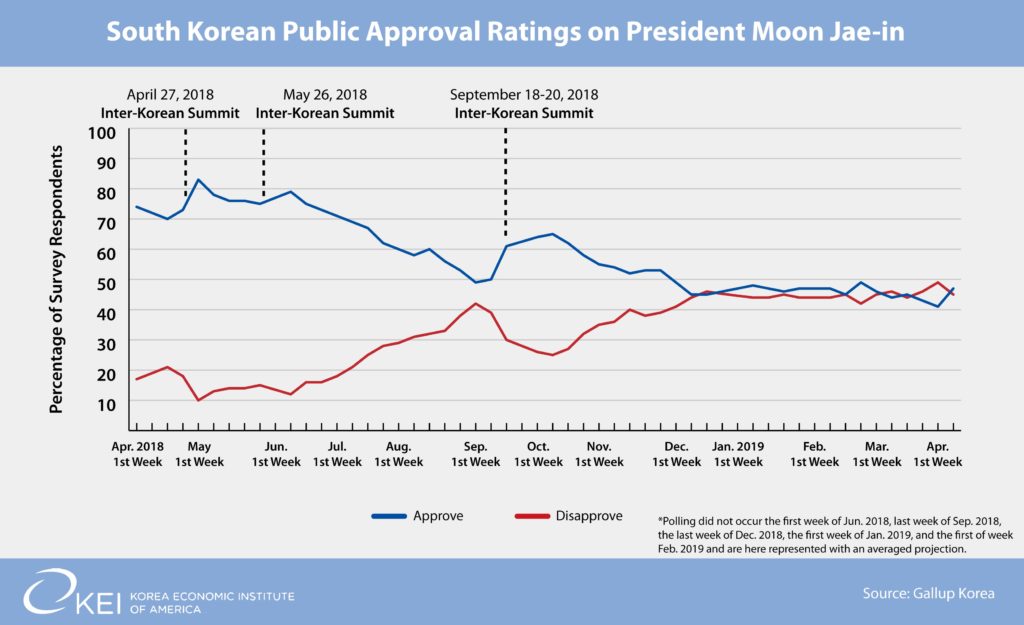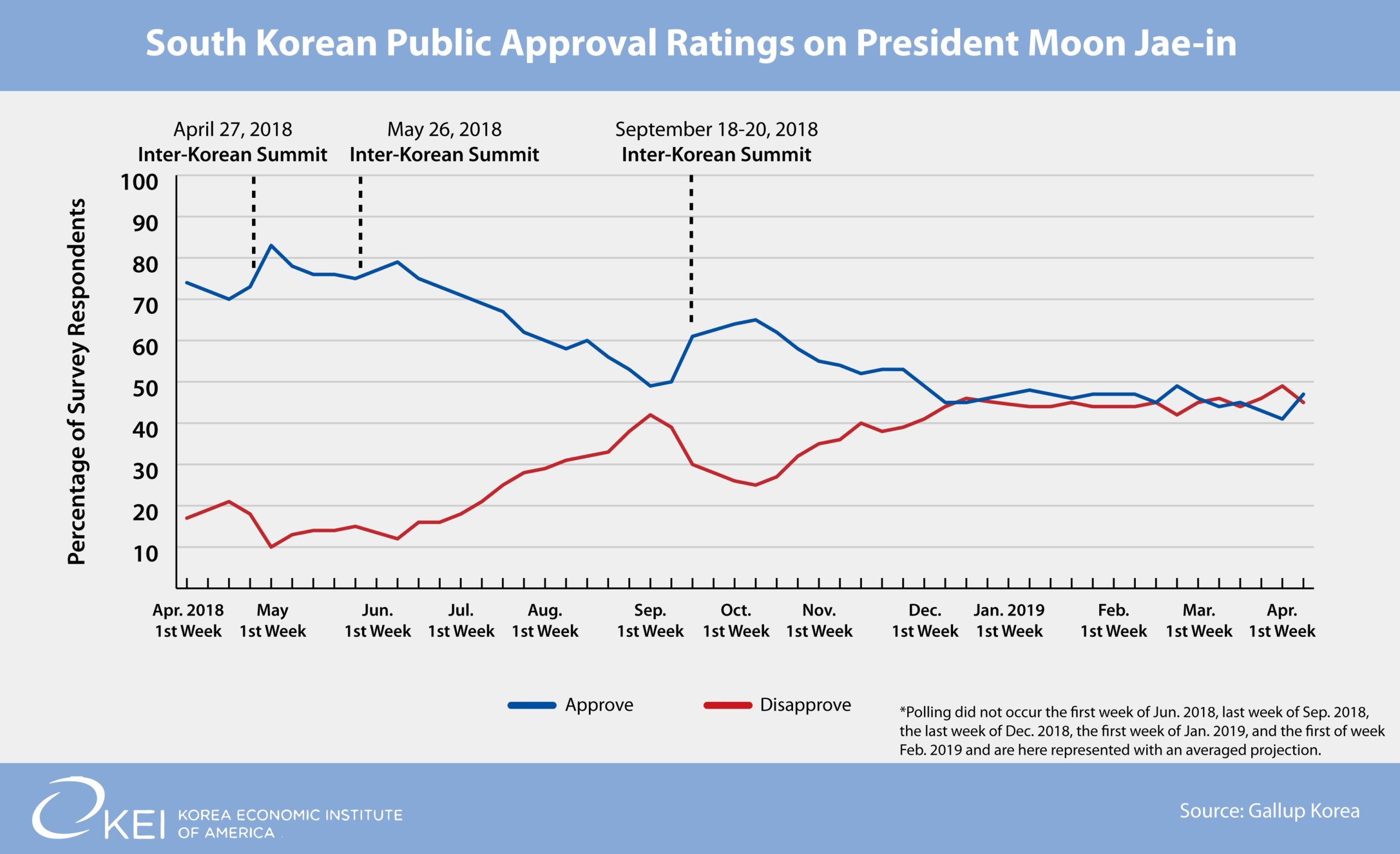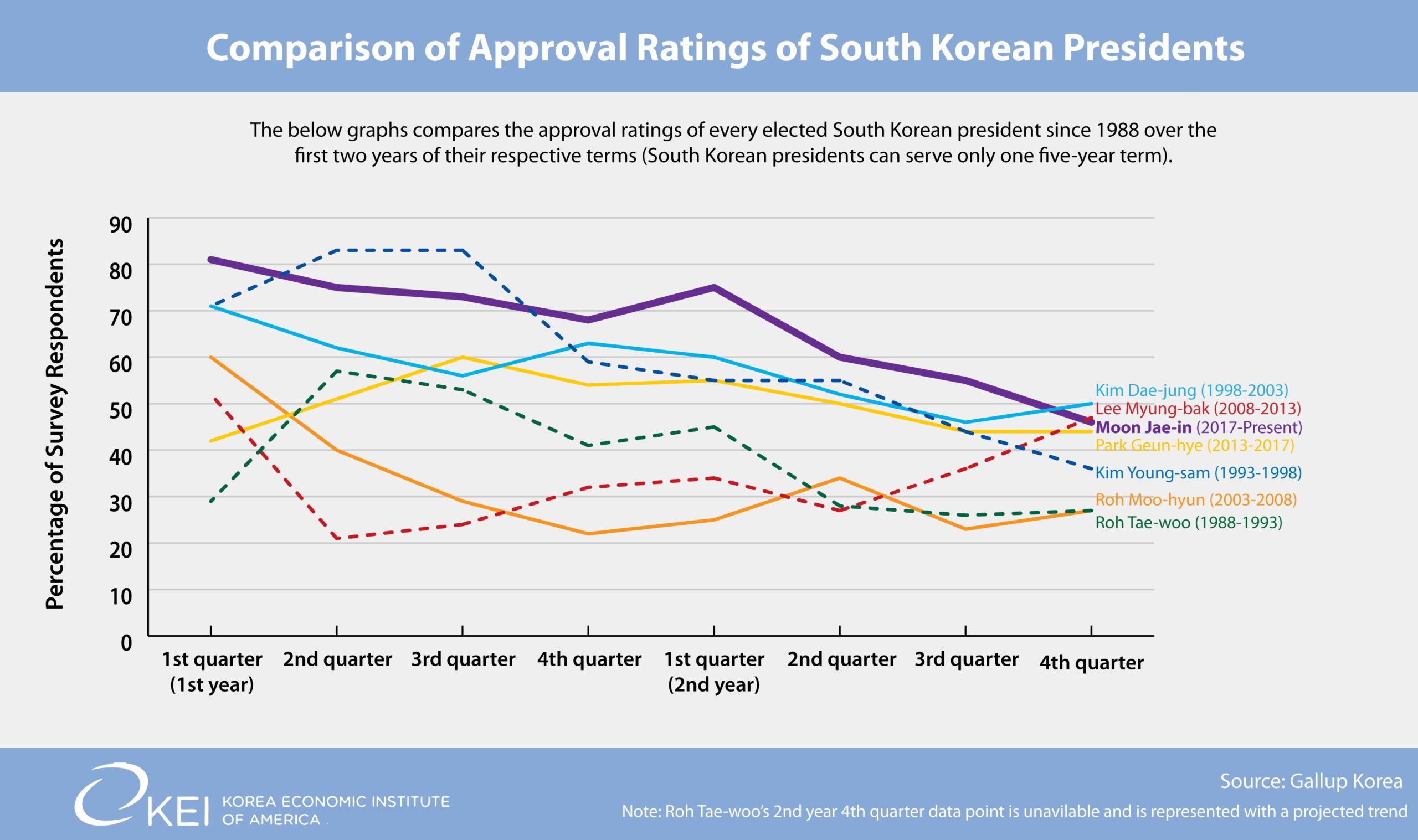The Peninsula
Moon Short on Time to Win Back Lost Public Approval

By Juni Kim
Moon is at a pivotal crossroads in his presidency. As he approaches the halfway point of his five-year term, the initial public enthusiasm over the revival of the Korean peace process that buoyed his high approval rating has steadily waned from multiple diplomatic setbacks over the past year. Economic concerns have also become a primary sticking point for Moon and his administration, and efforts to assuage an anxious citizenry have not yet effectively yielded results. Recent cabinet reshufflings and controversies over nominated picks have also hurt the administration’s standing. With his public approval ratings dipping under 50 percent in recent months, Moon faces critical decisions in the coming months if he wishes to win back the strong public support that helped usher him into office.
When Moon was elected in May 2017, South Korean voters had high hopes in resetting the political scene after the scandal and public fallout that helped oust Moon’s predecessor Park Geun-hye. Moon garnered widespread public approval during his first months in office with approval ratings that peaked over 80 percent, but since then his numbers have steadily dropped to under 50 percent. Although the three inter-Korean summits last year brought about approval rating bumps, the gains made from the summit were eventually erased by public concerns over the progress of the peace talks and the administration’s handling of the economy.

As mentioned in a previous blog post, Moon’s steady fall in his approval ratings since the start of his presidency follows a familiar refrain from past democratically-elected Korean presidents. Despite entering his term with record-high approval ratings, Moon’s ratings have consistently decreased over the past two years, with the notable exception of a significant ratings bump last Spring when the first inter-Korean summit between Moon and North Korean leader Kim Jong-un occurred. Despite the downward trend, Moon has consistently polled higher than his predecessors, and even in the most recent quarter he is only averaging a few points lower than previous presidents Kim Dae-jung and Lee Myung-bak.
It is also worth noting that no South Korean president has been able to average a quarterly approval rating higher than 50 percent past his/her third year in office. Moon is currently fluctuating a little beneath that mark, but if he is able to win back some support in the coming months he may be the first president to do so.

For his part, Moon has pushed to reverse his fortunes and get the peace process back on track. In light of the recent no-deal summit between the U.S. and North Korea in February, Moon met with U.S. President Donald Trump in Washington last Thursday to discuss alternative agreements, and yesterday Moon stated he would be open to a fourth inter-Korean summit “regardless of venue and form.”
Time is the critical factor for Moon and his administration in gaining back public favor. If peace talks continue to stall, Moon will have an increasingly difficult time winning back a constituency eager to see tangible progress, and a disillusioned public can jeopardize Moon’s policy agenda in the last few years of his presidency. With strict UN sanctions on North Korea still in place, the proposed inter-Korean economic projects that were meant to be launching point for cross border cooperation have yet to take off beyond initial discussions and joint surveys. The start of these projects will likely require some form of sanctions lifting, which would likely only occur from an agreed U.S.-North Korea deal. President Trump indicated last week that he is in no rush to make a deal, but for Moon the stakes grow higher as the months roll by. For now, it appears that Moon is undaunted despite recent setbacks in staking his presidential legacy to the success of the peace process.
Juni Kim is the Program Manager at the Korea Economic Institute of America (KEI). The views expressed here are the author’s alone. Graphics by Juni Kim.
Photo from the Republic of Korea’s photostream on flickr Creative Commons.
